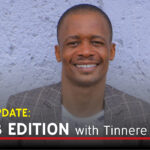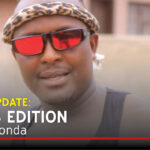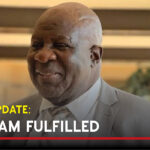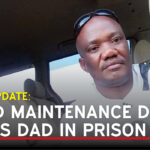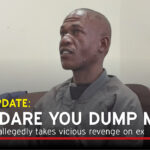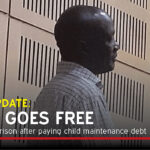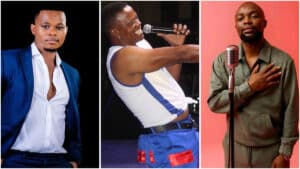- The storied life of a scribe
When it comes to our print media, there are a few journalists who can boast a career as epic as Spencer Mogapi, who entered the newsroom from the bottom and is now exiting at the pinnacle as a publisher, an editor and a respected opinion leader.
Mogapi’s departure to pursue other interests in Communications will mark the end of an era at the Sunday Standard and Telegraph newspapers where he served as a Deputy Editor and Editor respectively for decades. He sat down with Emang Mutapati for a chat about life in the fast lane of news gathering and reporting.
Has it always been your ambition right from the beginning to become a newspaper editor and publisher or your career just evolved that way by default?
I never set out to become a journalist. I wanted to become a school teacher, or at best a university professor. But when I was at the University of Botswana I had a sociology professor, Jay O’Brien, with whom I got along very well.
He really believed I could become a journalist, I suppose because he had observed my class presentations over time. And he kept telling me that. One day towards our graduation he brought me an advert of a journalism scholarship. I think it was Percy Qoboza scholarship, named after the legendary South African editor.
And he helped me to apply for it, but they turned me down. Instead I got a call from Botswana Gazette. By graduation day I was already a full time journalist.
What was your biggest challenge as an editor when you first entered the newsroom many years ago and what has changed over the years?
It was not easy competing with big names in the media. Many sources preferred to deal with Botswana Guardian and Mmegi. You can imagine The Guardian had in it established good writers like Outsa Mokone, Mike Mothibi, Mesh Moeti, Mpho Dibeela, Joe Balise and Bashi Letsididi.
They called themselves a dream team. Every journalist wanted to work with them. One day Outsa, Mike and Mesh took me out for lunch trying to recruit me. They offered me a lot of money.
I turned them down, telling them I believed I still had a lot to learn from Clara Olsen, who was owner and Managing Editor of Botswana Gazette. They thought I was crazy not to take their offer. I still believe I made a good decision.
Many women have described the newsroom as not conducive to them with claims of sexual harassment coming out of the newsroom. What do you think of the gender aspect of the newsroom?
For many women a newsroom can be a toxic place to work. Some newsrooms resemble a bull camp. It is very important that concerns of gender imbalance are taken seriously.
I know women have often complained that newsrooms can be intimidating because of the language used by their male colleagues. We have come a long way, but there is still a distance to travel on gender issues in the newsroom.
Do you feel like you have accomplished all that you set out to do at The Telegraph and the SS?
No, not at all. I still wish we had produced more journalists. We tried our best, but they often did not stay long enough. At a personal level, I believe I have done my best.
What have you liked the least about being the editor of the Telegraph and Deputy editor of the SS and what has been the best parts of the job?
For me reporting has always been the most enjoyable part of my job. I like investigative journalism. Of course many people have come to know me as the name behind my weekly column, The Watchdog.
To be honest with you that has not been my favourite part, not least because at heart I don’t like writing about politics.
What influences the way you think about coverage and news?
For me, first and foremost a complete story should affect the biggest number of people. In other words it should be of public interest. The story should have names in it.
That gives it a human interest angle. And by the time one finishes reading a story they should not be left with more questions than answers.
What big stories, not just from SS would you say made an impact on your career over the years?
A few years ago Botswana government brought in a consultant to overhaul government institutions. He ended up producing a confidential paper in which he recommended Air Botswana to be sold, as he put it on Botswana’s Independence Day.
It read like a scene from a movie. We got hold of the documents and they were a marvel to read. To make matters worse the airline was going to be sold to his friends.
Other than that, covering the deaths of Louis Nchindo and Gomolemo Motswaledi has also provided an indelible perspective on my life and career as has been covering the story behind the intrigues of the relocation of Botswana diamonds from London to Gaborone.
I enjoyed interviewing Kenneth Kaunda. He was humble and full of humour. He told many stories about Sir Seretse Khama that I found fascinating.
What is the number one quality of a reporter you would advice editors to look out for when hiring?
The journalist should be willing to learn. They must be willing to listen. They must have depth and should love current affairs and be willing to read, watch and listen to the news.
One becomes a good writer only when they read the works of good writers. And perhaps most importantly these days, a journalist must have a sense of proportion.
Any young reporters to watch out for right now?
I admire Nicholas Mokwena’s work ethic. I have told him that. I can only hope he has a clear perspective of how fast people are becoming reliant on his writings. I like Sharon Mathala.
She’s brave in her work. Victor Baatweng is a future leader of the industry, you can be sure about that. Thobo Motlhoka is a gifted writer. He needs to work really hard on his work rate.
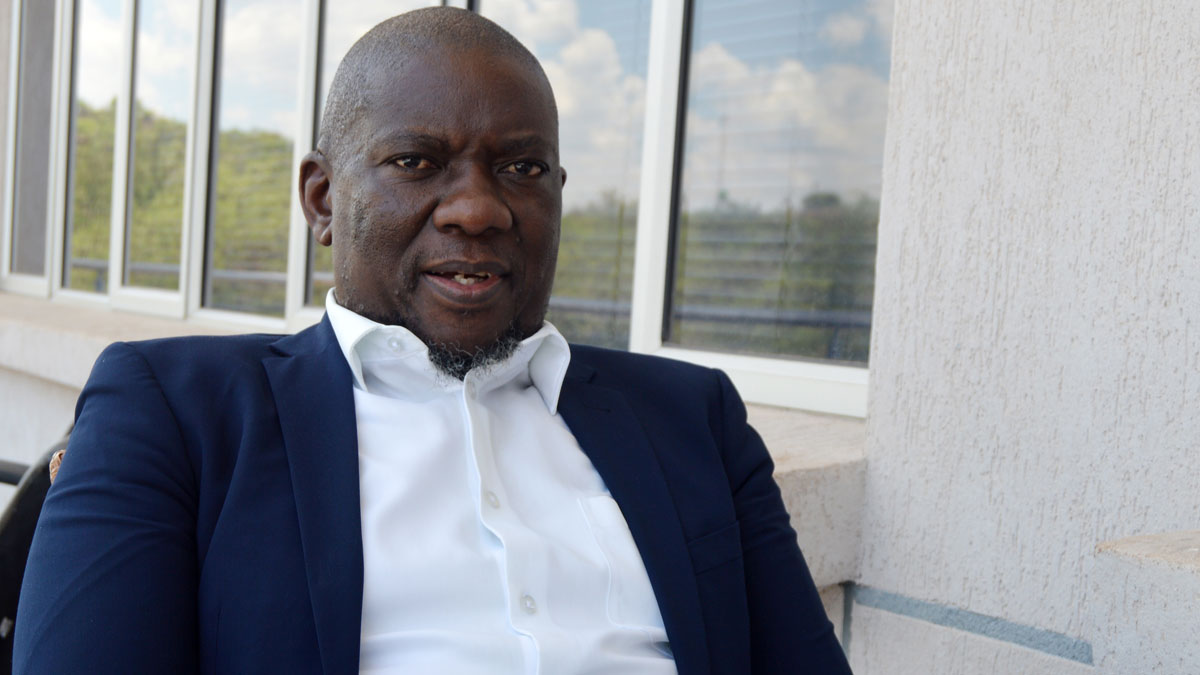
How important is it for the media to shape the narrative and how do you think they can do it effectively and ethically?
For a journalist the best way to shape the narrative is to break stories. When the public gets more informed from the good work of reporting they get a clear narrative.
And with good reporting there is really not much needs for explaining through the use of opinions or by columnists.
You have been described by some of your detractors who regard you as a propagandist of note as Goebbels. How does that make you feel?
Whatever Goebbels talents, he was a Nazi. And a very senior one at that. As a student of history I can never be comfortable much less enjoy being compared to a Nazi. For me it is not a compliment, it’s a libel.
How did you manage the conflict between the interests of the publisher and the interests of an editor in a newsroom?
The conflicts of a publisher and an editor are too often grossly exaggerated. I have always regarded myself first and foremost as a journalist who happened to have shares in a media company.
There is nothing unique about that. Pioneers of journalism here like Clara Olsen, Titus Mbuya and Beata Kasale were in that position long before me.
The reason why I felt strongly about starting Sunday Standard is because I felt I did not have enough control at Botswana Gazette.
The trouble in Botswana is that journalists think having shares in a media house necessarily makes one a publisher. That is not the case.
Do you honestly regard Cyril Ramaphosa as a publisher? I hope not, yet he has big interests in the South African media. But more crucially I have never considered poverty and journalism to mean the same thing.
What is your opinion on media houses deciding to take a stand to support a particular political outlook/viewpoint, e.g right wing versus left wing?
There is absolutely nothing wrong with that. The work of journalism goes beyond just reporting.
It is also about advocacy work. In our instance it is regarded as a crime by politicians especially, for a journalist to support or oppose anything like death sentence, to support or oppose the private sector, to support or oppose abortion.
The trouble is that when it comes to their own ethics our media has always promoted a kind of moral equivalence that only exists in fiction. And the politicians have been trying by all means to hold them against that.
It only happens in Botswana. Objectivity is not science. The world has long moved on.
Editors, especially of big and influential papers like the SS can sometimes be approached or be brought into confidence by both individuals and government on certain stories and be asked to withhold certain pieces of information for the greater good of the nation, are there any decisions you have made to publish or not to publish that you regret?
Every journalist of note will at different times be taken into confidence, including by the head of state. It is absolutely normal. It is often to provide context and background.
Such briefings are off the record. The important thing for a journalist is to understand the motive of such briefings to avoid being used.
You cannot as a journalist approach a government official with a story and then agree to be talked off it. That is not journalism.
What has been your relationship with politicians?
All of them say I am great but none of them believes what I’m saying – I have just quoted Thomas Carlyle, the Scottish philosopher. That I think is the best description of my relationship with politicians. I suppose many of them would have at different times thought of me as a snob.
Any proud moment for you in your illustrious career?
I am proud of people who worked under me and went on to become big in what they do. That gives me a lot of pleasure – Spike Ganetsang, Oliver Modise, Batlhalefi Leagajang – to name but a few.




